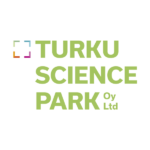European Screening Port – Your partner for drug discovery
(On the pic: View into screening lab of European ScreeningPort)

In recent years, the Pharma industry suffered from the so called “innovation gap”. Regardless of the increasing expenditures in Reseach&Development the Pharmaceutical Industry has failed to deliver new treatment options capable of addressing the patients unmet needs.
To address this situation, new strategies are being developed in the pharmaceutical industry with the objective of transforming its R&D operation and find more efficient ways to innovate. At the same time academic biomedical research institutions are recognizing the benefits of forming deeper partnerships with the pharmaceutical industry to translate their ideas and research into drugs. This understanding is leading to a new R&D model based on the opening of organizational structures and the formation of strong cross-links between academia and pharmaceutical industry, so called “Open Innovation”. Academic institutions and bridging organizations are collaborating to create quality starting points for new Drug Discovery programs.
The European ScreeningPort (ESP) located in Hamburg, Germany (www.screeningport.com) is a recent addition to the ranks of High-Throughput Screening (HTS) service providers to the academic sector within Europe. The European ScreeningPort is set up as a Public Private Partnership, funded in part by the German Government and the City of Hamburg. It works with academic institutions to create and then operate drug discovery programs addressing novel therapeutic targets. The key competency of the ESP lies in early stage (Target-to-Lead) small molecule discovery based on a screening approach. The core technologies used in this screening center are similar to those used in mainstream Pharmaceutical Industry. ESP operates a state-of the art infrastructure for in-vitro and in-silico screening which includes access to up to 600,000 high quality compounds. The compound collections have been designed to address a range of target classes including those with specific relevance to neurological diseases including ion channels, GPCR’s, kinases, and protein:protein interactions such as those associated with intracellular signalling pathways. Typical projects integrate medicinal chemistry insight with in-silico, in-vitro, structural and disease biology knowledge to identify molecules which have the best chance of translating from the laboratory to the clinical setting.
The HTS platform operated by European ScreeningPort handles 96 – 1536 well microplates with integrated nano-litre scale dispensing and sensitive multi-mode optical based readouts. All mainstream assay technologies commonly found within the Pharmaceutical industry are provided at the ESP including AlphaScreen, Time Resolved FRET and High Content imaging, an area of screening technology where academia and European ScreeningPort have moved ahead of mainstream Pharmaceutical industry. Our aim is always to develop the most physiologically relevant assay readouts, for example using native protein substrates or Primary cells rather than synthetic peptides or engineered cells which may be easy to handle but bear little relation to underlying disease biology.
In addition to our focus on drug discovery, we offer support in translating disease understanding into successful clinical candidates with our biomarker and translational research group, located at the University Medical Centre Hamburg-Eppendorf (UKE). Here we established expertise in performing biomarker discovery studies for clinical and pre-clinical research projects.
The European ScreeningPort has a track record of successful project delivery for major German academic institutions including the Fraunhofer, Helmholtz, Leibniz and Max Planck organisations. Internationally, it has active projects with academics in Denmark, Norway, Finland, Netherlands, Switzerland, the United Kingdom and Canada. It additionally maintains strong links with the Pharmaceutical industry. Active industrial collaborators include Merck Serono as part of the NEU2 Multiple Sclerosis consortium and Bayer within the context of the “Kinetics for Drug Discovery – K4DD” programme, an Innovative Medicine Initiative Joint Undertaking (IMI-JU).
In summary European ScreeningPort operates across three main business areas:
Drug Discovery – Working exclusively with academic and research institutes, ESP provides a complete drug discovery service covering all stages from target validation via small molecule screening to candidate selection
Biomarker and Translational Research – In our specialist laboratory facilities embedded in a University clinical research centre, we support biomarker discovery studies for clinical and pre-clinical research projects
Enabling Technologies – The company actively develops and benchmarks novel assay and screening technologies in partnership with the life-science industry
Fig: Business Model of European ScreeningPort: Bridging the Gap between Academia & Industry













